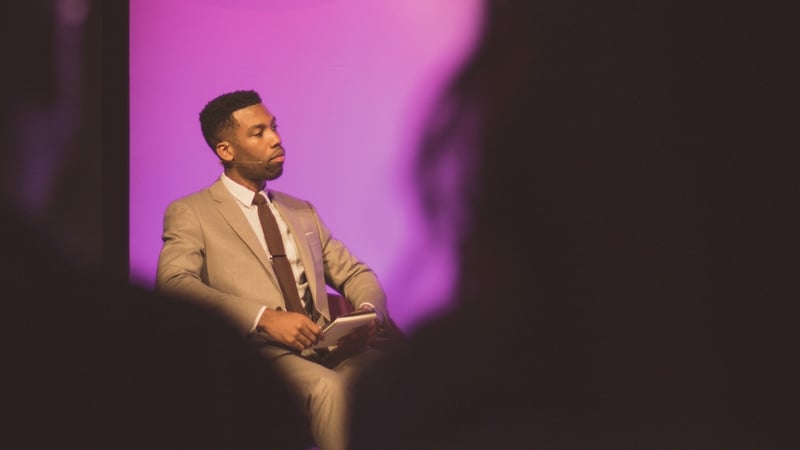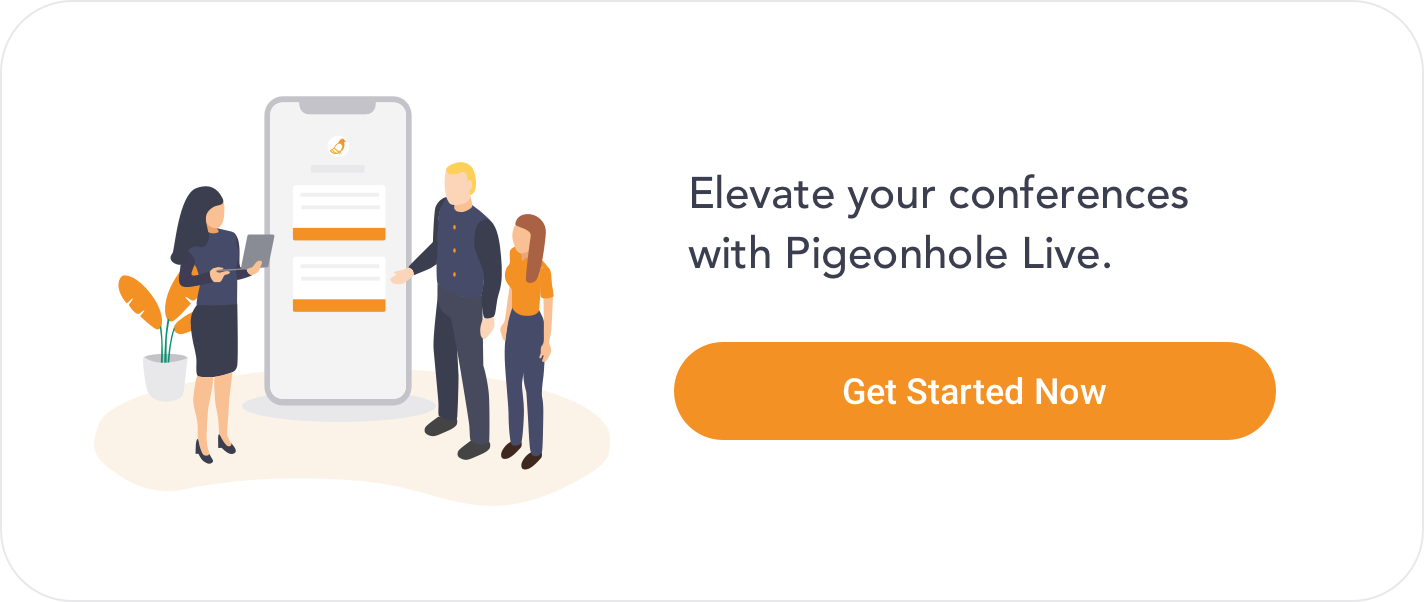5 Qualities of a Good Moderator for Engaging Discussions

Ernest Bio Bogore
January 3, 2023

Table of Contents
As a fast-growing company that wants to position itself as an industry leader, you can establish your brand and connect with potential customers by organizing networking or informative events. However, the success of your event depends largely on the moderator you hire. Hiring a good event moderator can make your event a roaring success, while hiring a bad one can ruin it and damage your company's reputation.
5 things a great moderator needs to do...
It is said that some 68% of B2B companies hire external moderators for events like virtual round table discussions. What this means is that you need to pay attention to having an experienced and knowledgeable moderator for these types of events.
An event moderator should possess a set of characteristics that make them a perfect fit for your company and audience. They need to be able to engage the audience, keep the flow of the event going, and ensure that the speakers stay on track.
So, here are 5 traits that you should look for in an event moderator to ensure your investment is worth it:
1. Proactiveness: Taking initiative and anticipating needs
A great event moderator doesn't just show up on the day of the event and wing it. They do their research days before the event and master the topic or theme to some extent. By familiarizing themselves with the topic, they can anticipate potential audience questions and prepare for them. A proactive event moderator also takes the time to research who will be attending and the speakers, so they can tailor their approach to the audience and manage the speakers' time effectively.
A moderator for a tech conference, for example, could do their research on the latest trends and innovations in the industry. They could use this knowledge to anticipate potential questions from the audience and ask the speakers more informed follow-up questions. Additionally, they could use Pigeonhole Live to create a live Q&A session, where the audience can submit their questions in real-time, and moderate them effectively.
2. Efficiency: Prioritizing tasks for efficient outcomes
An experienced moderator understands the importance of sticking to the event schedule to avoid wasting the audience's time. They get a copy of the agenda in advance and plan their time accordingly, arriving early and keeping an eye on the clock to ensure sessions don't overrun.
A well-prepared moderator for a product launch event, for instance, could arrive early and ensure that everything is set up and ready to go before the start of the event. They could also use Pigeonhole Live's Agenda feature to create a detailed schedule for the event, including the speakers' names and the time allotted for each session. This would help them keep the event on track and ensure that everything runs smoothly.
3. Attentiveness: Focused engagement and empathy
The audience is the star of the event, and a receptive moderator makes them feel that way. They are alert throughout the event, listening for intriguing questions and unexpected turns in the speakers' presentations. They use tools like Pigeonhole Live to manage the audience's questions and polls, making them feel heard and engaged.
A star moderator for a marketing conference, for example, could use Pigeonhole Live's Polling and Live Q&A features to engage the audience and encourage participation. They could ask the audience to submit their questions and opinions on the topic being discussed and use Pigeonhole Live's moderation tools to select the most relevant and interesting questions to ask the speakers. This would help create a far more interactive and engaging experience for the audience.
4. Reactiveness: Adapting quickly to changing situations
A hard-working moderator ensures the attendees get the most out of the event. They ask follow-up questions to speakers who are taciturn or unclear and take audience questions and polls into account during the event. They adapt their approach to the situation, keeping the audience's needs and interests in mind.
For example, a moderator for a startup pitch event could use the Live Poll feature to empower the audience to vote on their favorite startup pitch. They could then use this feedback to ask the most popular startups more detailed questions during the Q&A session, allowing the audience to learn more about the most interesting and innovative startups.
5. Clarity: Clear and concise communication
A powerful moderator communicates clearly and concisely, using straightforward language without being confrontational or biased. Their job is to ensure the speakers and audience members understand each other and get along, creating a positive and productive atmosphere.
At a panel discussion on diversity and inclusion, for example, a moderator could use Pigeonhole Live's Word Cloud feature to display the most commonly used words during the discussion. This would help highlight any problematic language or ideas and allow the moderator to steer the conversation in a more positive and inclusive direction. The moderator could also use moderation tools to ensure that any inappropriate comments or questions are not included in the discussion, creating a safe and respectful environment for all participants.
Empower your next event with the right moderator
Hiring an exceptional event moderator is crucial to the success of your event. By looking for these five traits, you can ensure that your moderator is a perfect fit for your company and audience and that they will deliver the best possible experience for everyone involved. With the right moderator and tools like Pigeonhole Live, your event can be a roaring success that establishes your brand as a leader in your industry!
Pair your dream moderator with a powerful audience response tool
Frequently Asked Questions
Q. What are the best-rated interactive Q&A tools for leadership meetings?
A. Tools like Pigeonhole Live provide live Q&A with moderation, anonymity, and multilingual support, enabling inclusive and transparent leadership communication. They allow leaders to surface diverse perspectives, respond to real-time concerns, and grow a culture of engagement and trust.
Q. How can a moderator use tech to improve audience engagement during open forums?
A. Moderators can use interactive tools—such as live polls and real-time Q&A—to gauge audience mood, surface priorities, and guide meaningful dialogue. These technologies transform passive listeners into active participants, creating a more dynamic and responsive conversation.
Q. Which platforms enhance open communication during leadership forums?
A. Platforms like Pigeonhole Live enable structured Q&A, anonymous feedback, and voting, creating a safe space for honest dialogue. They encourage diverse viewpoints, promote transparency, and help leaders make informed decisions based on real-time audience insights.
Q. Are live polling apps useful for event moderators?
A. Yes, live polling apps give moderators a real-time window into participant opinions, helping them uncover consensus, highlight diverse perspectives, and adjust the discussion dynamically. They transform passive audiences into active contributors, making the event more responsive, engaging, and relevant.
Q. What makes a moderator effective in today’s hybrid or virtual events?
A. A great moderator uses technology to include everyone, handle tough questions, and keep the conversation flowing. They boost engagement with polls, Q&A, and breakout sessions, making hybrid and virtual events seamless and interactive.
Download our ebook to uncover more ways to apply the two-way conversation approach in your town halls.

